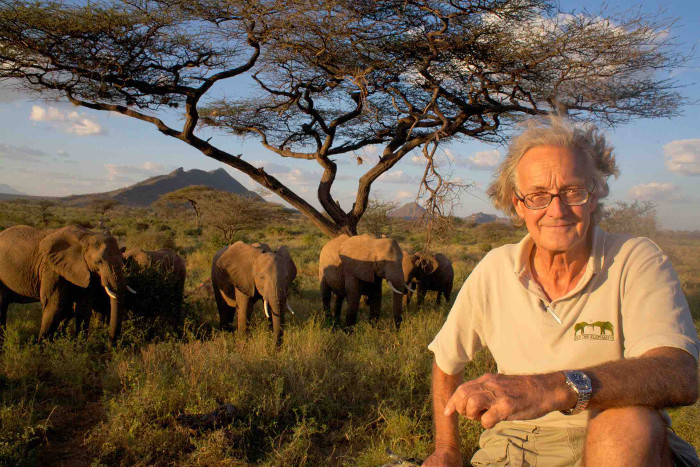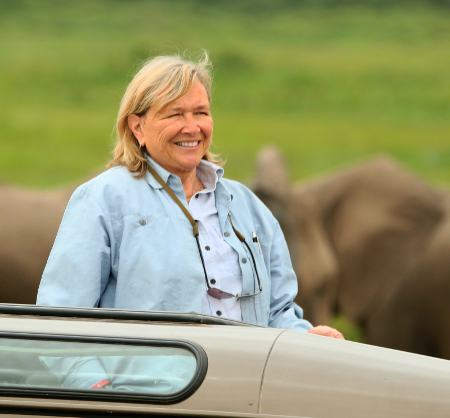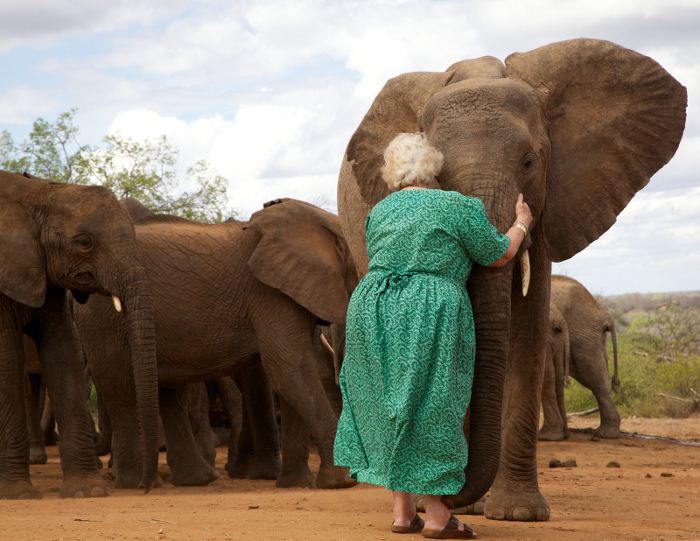Three of the world’s leading African elephant conservationists offer hope and inspiration for saving elephants, the largest land animal on earth, from extinction.
Iain Douglas-Hamilton

Many people consider Iain of Save the Elephants to be the grandfather of elephant conservation. Fifty years ago, at the age of 23, Douglas-Hamilton moved from Britain to Lake Manyara National Park in Tanzania to live in the wild, conducting the first scientific study of the social interactions of the African elephant. Douglas-Hamilton argues that collecting and analysing large amounts of data on elephant locations and migrations can lead to insights into their choices and, therefore, assist in protecting against rising threats, including poaching and human-wildlife conflict. Douglas-Hamilton was the first to alert the world to the ivory poaching holocaust, and he helped bring about the world ivory trade ban in 1989.
What gives Iain Douglas-Hamilton hope and inspiration for saving elephants?
“Various collaborations of concerned individuals, non-governmental organizations (NGOs), institutions and governments playing such a big role in demand reduction gives me such joy and hope that we are all working together to ensure the survival of elephants. Whenever I feel down, I go and hang out with the elephants in Samburu (Kenya), who are very used to me and allow me into their world to watch as a silent observer. I see the young mothers who have grown up from childhood, and I get my elephant fix for a few hours. This re-invigorates me to face and combat the awful realities of the elephants’ situation in Africa today.”
Cynthia Moss

American-born Cynthia Moss moved to Africa in 1968 and has spent the past 47 years in Kenya studying elephants and working for their conservation with the Amboseli Trust for Elephants.
How does Cynthia Moss stay inspired?
“It’s not difficult to stay inspired when one is dealing with elephants. They are infinitely inspirational—long-lived, intelligent, intensely social, charismatic, empathetic, amusing, endearing and more. Anyone could be inspired by elephants without ever seeing them in the wild. Of course, there are bad days when it seems impossible to conserve elephants, but I have never once thought of giving up. There is nothing heroic or commendable about my position; there is simply no choice for me.”
Daphne Sheldrick

As a child, Daphne Sheldrick rehabilitated injured animals before returning them to the wild. Today, through the David Sheldrick Wildlife Trust organisation, she is considered the world’s expert on raising orphaned elephants (who have lost their families mainly due to poaching) and re-introducing them back into the wild.
How does Daphne Sheldrick stay inspired?
“By involving oneself in the natural world, one understands that the other beings that share our planet home have to cope with far worse traumas [than we], and yet find the courage to turn the page and focus on the living. The elephants, in particular, have given me the strength to emulate them in this way. There are always highs and lows in the work I do, but one simply has to cope and accept the rough with the smooth!”
*All quotes are excerpts from my book Saving Wild, Inspiration From 50 Leading Conservationists, which is available on Amazon.
Read more about some of the world’s leading conservationists: Message of Hope.
 Find out about Kenya for your next African safari – find a ready-made safari or ask us to build one just for you.
Find out about Kenya for your next African safari – find a ready-made safari or ask us to build one just for you.
To comment on this story: Login (or sign up) to our app here - it's a troll-free safe place 🙂.![]()






